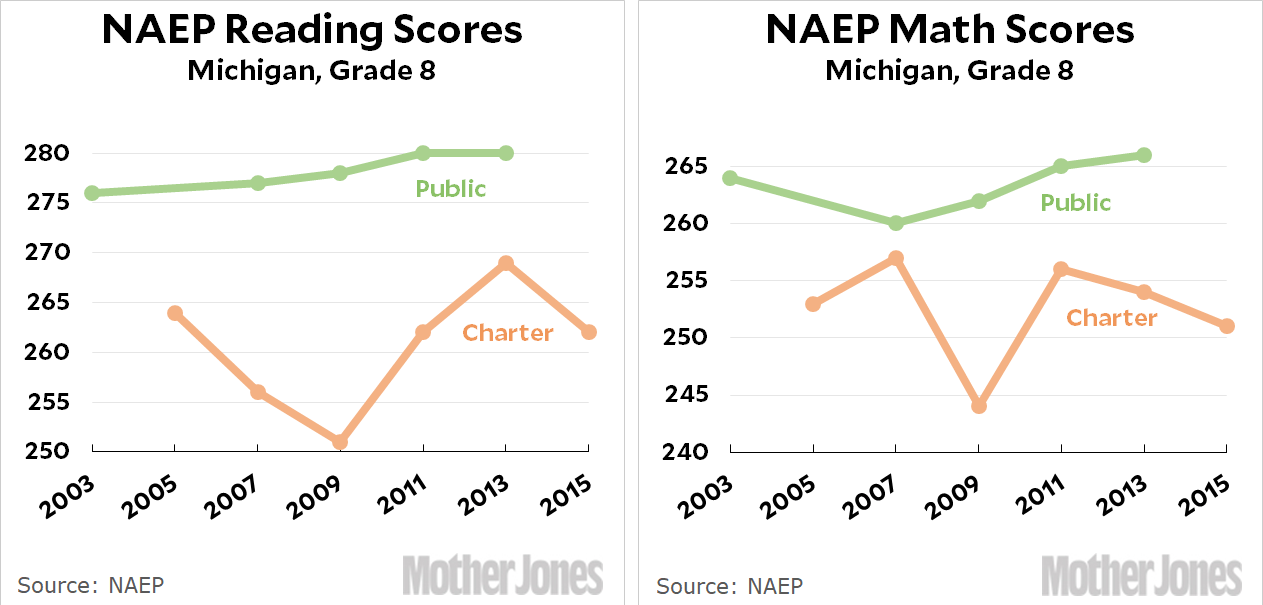Last night on 60 Minutes, Education Secretary Betsy DeVos had trouble with a few of the questions. First, Lesley Stahl asked why it made sense to take money away from public schools that were failing. Would that make them better? DeVos said that in Florida, for example, which allows lots of student choice, “the traditional public schools actually– the results get better.”
Then Stahl switched to Michigan, DeVos’s home state, and one that she’s spent years trying to make more charter friendly. Here’s how it went:
Stahl: Have the public schools in Michigan gotten better?
DeVos: I don’t know. Overall, I– I can’t say overall that they have all gotten better.
Stahl: The whole state is not doing well.
DeVos: Well, there are certainly lots of pockets where this– the students are doing well and–
Stahl: No, but your argument that if you take funds away that the schools will get better, is not working in Michigan where you had a huge impact and influence over the direction of the school system here.
DeVos: I hesitate to talk about all schools in general because schools are made up of individual students attending them.
Stahl: The public schools here are doing worse than they did.
DeVos: Michigan schools need to do better. There is no doubt about it.
How are public schools doing in Michigan? DeVos didn’t seem to know, and Stahl was quite sure they’re doing worse. There’s no single answer to this question, but one quick way to ground yourself is to look at NAEP scores over time. So I hopped over to the NAEP website, which announced a fancy new data explorer tool, and explored. Here’s the answer:¹

Stahl seemed quite sure that public schools were doing worse, but the NAEP data suggests that in both math and reading they’ve improved over the past decade by as much or more than the national average. DeVos should have known that!
Unfortunately for DeVos, the same data suggests that charter schools in Michigan are doing worse over time. The data is jumpy, but in both math and reading the 2015 scores are below the 2005 scores.
These figures aren’t broken down by race or income or location or any of that, so don’t take them too seriously. Still, they provide a rough look at how Michigan kids are doing, and it sure looks like they’re doing steadily better in public schools but not in charter schools. I think everyone in this 60 Minutes segment should have done a little more homework.
¹I chose 8th grade because there was almost no data for 12th grade. But if Michigan is like the rest of the country, test scores for 12th graders are probably pretty flat.













